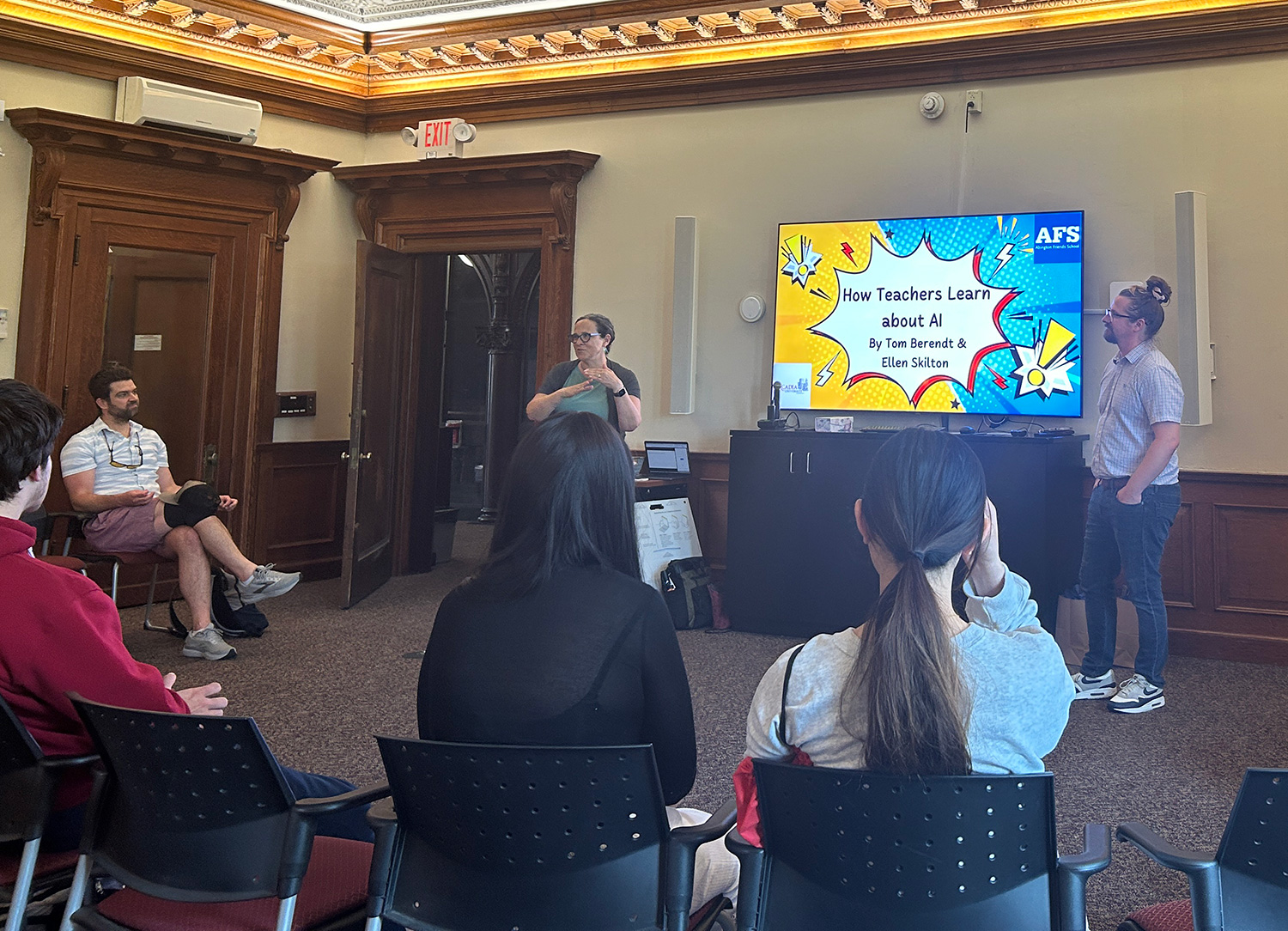Center for Teaching, Learning, and Mentoring Generates Discussion on AI in Education Among Local High School Students

Arcadia’s Center for Teaching, Learning, and Mentoring (CTLM) welcomed a group of high school students and their teachers from Abington Friends School (AFS) to campus for a workshop discussing artificial intelligence and education on June 5.
Led by Dr. Tom Berendt, CTLM AI fellow and adjunct professor of Religion, and Dr. Ellen Skilton, CTLM faculty director and professor of Education, the workshop engaged students in conversations surrounding AI use in the classroom and how teachers can shift their approach to benefit all kinds of learning.
“We often find that the initial conversations about AI in education all focus on plagiarism, and we try to really expand that conversation to help people think through how AI is a new technology, like calculators or even the camera early on, that mostly feel threatening at first until we can get a handle on how it is shifting things,” explained Skilton. “Arcadia has really focused on taking a ‘learning stance’ with AI.”
This workshop comes toward the end of a week-long course about AI for the AFS students, culminating in projects that will help their school develop AI policies, rubrics, and peer education. However, this partnership also allows the CTLM to learn from the AFS students, gaining additional perspectives on AI use from outside the Arcadia community.
“Often, students know more about AI usage than their teachers,” Skilton said. Their buy-in is really important.”
AFS students discussed concepts, including mistakes made by educators using AI, generative AI critical analysis activities, and whether students should use AI in small groups. Skilton then asked ChatGPT the same questions posed to the groups, generating further discussion.
The CTLM has spent the last academic year hosting events like AI Watch Parties and Lunch and Learns to encourage discussion between students and faculty, while also providing a space to learn more about the AI tools that are available and how to ethically utilize them.
“We understand people are using AI, we understand that people are afraid of it, and we understand that people are excited about it,” Dr. Berendt said. “So we’ve spent time surveying how students and faculty use AI, but now we’re looking to build on what we’ve learned and develop expertise in AI literacy and how to teach it.”
“We are now very focused on AI literacy,” added Dr. Skilton. “How do we encourage critical, ethical, and safe engagement with AI? How do we shift our teaching in ways that ask students to do more engaged, critical, human work that AI really can’t do?”
In the fall, the CTLM will launch several new AI initiatives, including piloting an asynchronous Canvas course around safety, ethics, and effectiveness of AI called See4; the AI2 Academic Affairs AI Assessment and Inquiry Team and a monthly discussion group called Bagels and Bots. Dr. Berendt will also teach RE285: AI and Religion, which will examine the growing intersections between AI and religion, AI as a source of religion itself, and religious and ethical concerns.

